Hello Blanchetters!
We have added four new magazines to the gallery. The last two are pretty recent, do give them a read.
Io Donna Italy – December 21st, 2019



Harper’s Bazaar Taiwan – February 2020


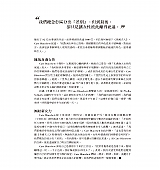
S Moda – El Pais – March 22nd, 2020


Aventura Magazine – April 2020



A brand new interview promoting Mrs. America has been released today, read it below (Cate also talks about Nightmare Alley)
Mrs. America: Interview with Star and Producer Cate Blanchett
Interview with Blanchett
Career Vs. Home
Cate Blanchett: Gloria Steinem said something fascinating, that she has yet to hear a man ask her advice on how to combine marriage and a career. And here we are in 2020, and we are still asking those same questions that my male counterparts just do not get asked. That is one of the reasons why I wanted to make a series because I feel in a way that each day that went past us as we were filming, the show became increasingly relevant, because the language around how we discuss these women in the world, whether we spend our time primarily in the home or whether we try and work in the workforce and also have a family or whether we devote ourselves entirely to our career or any combination thereof, there is still a sense that we alone have to make this work and that if we fail it is our responsibility. I think there’s something wrong with that system and I don’t think anything has really changed in the conversation around that since 1971, which is when our series starts.Phyllis Schlafly
CB: I had tangentially heard about her. I had seen this little old lady, in her late 90s, being trucked out at the tail end of Trump’s campaign. And there was a standing ovation for her, and she seemed to be very, very important and treated with profound respect by members of the Republican Party. And I found out that that person was Phyllis Schlafly. And then I saw Trump attending her funeral, and I thought who is this woman? And parallel to that, I had met with Stacey Sher and Dahvi Waller to talk about this project. And I like you, I didn’t know much about her at all, but I wondered about why she was so internally important to the Republican Party but yet not so widely known outside of circles. And I think it’s partly because her influence has been so absorbed by the Republican Party. I mean a lot of her achievements, whether you call them achievements, some people will say they are dubious achievements, but achievements nonetheless, is that she has a past on preventing the ERA from being modified, she has quite, singlehandedly I think, embedded into the spine of the Republican Party, the notion of pro-life, pro-family and being pro-American.
All of that discourse came out of Phyllis Schlafly’s activities in the 70s and the early 80s. And I think that what has happened is her achievements has been absorbed by the Republican Party, whereas I think there’s been quite a lot of public rejection of second wave feminism that those women had their own identity. Whereas Phyllis, from my point of view, I didn’t know much about her outside her circle, so it was a really journey for me and one of the primary reasons that I wanted to make the series was to understand what was so terrifying and abhorrent that Phyllis Schlafly and the people who were like minded around her, what was so terrifying about the notion of equality and that was the reason I wanted to make it.Show’s Relevancy
CB: First and foremost, it’s an irreverent human drama, and it speaks to a point in history, but one that we haven’t learned that much from. And so I feel that the conversations and the dialectic and the drama that people experience in the series is very, very current. There were so many times when I would turn to the other actors and say oh my God, haven’t you had this conversation at home or don’t you feel like you are back in 2019? And we are saying we are in 1974, what’s changed?
It is interesting that back in 2001, they did a survey in America, and it was revealed that 72 percent of Americans already believed that the Constitution had specified that all citizens have equal rights irrespective of their gender. And I think that all of us believe that is a foundational given in the American Constitution. But the fact is it’s not, and the fact that it isn’t, means that we are doomed to repeat the same mistakes in our legislation, because the Constitution is an inspirational document from which laws spring. And so I feel like our situation as women, but also men and people of various different sexual and gender identifications and people who live on the fringes, still can’t walk into a space and say I am equal because the Constitution, which inspires us to be better people, doesn’t say it’s so. I think that really very little has changed. So I think it’s very, it would be quite shocking to an audiences watch the series and feel like at once they are back in the 1970s, but totally in the time in which we are living right now. Because the show is really a reverse engineering process of how did we get to where we are?Raised by Single Parent
CB: In my high school years, there was a big question whether you identified as a feminist or not. And it was just, I was raised by a single parent, a mother, and my grandmother was in the house, which was great, but my mother had to work. My mother didn’t really identify as a feminist. There was the notion that if you were feminist, you were anti-family. And that of course we all understand that the family is the basic building block of society and the totalitarian regime trying to destroy this and competing loyalties and the main loyalty always has to be in this state. And so feminism was anti-American, anti-family. And my mother kind of grew up with that sensibility, so even though she was a single, working parent, with all of the challenges that that entails, I, her daughter, identified as the feminist, but she didn’t. And so there was a stigma around identifying as being a self-actualized woman who felt like they could achieve anything in line with their male counterparts. And I didn’t understand the problem, but I do realize in retrospect that there was a real stigma that came off the women’s liberation movement because of its branding. And because also, in a way, the interesting thing was that it was women themselves who helped kill the notion of equal rights. And I think that influenced the way future generations of women picked it up.Explaining to her Children
CB: You can say it’s enlightened, but Phyllis Schlafly would say that there was a dogma to feminism, because they were trying to sort of enforce change. And I think in a way one leads by example and if you, I have always tried to tell my boys that my situation and having the ability to work or not work is not the case for all women. And they do understand that, they see other parents at their school and they encounter kind of stereotypical language say in a way say they naturally parody it, because they think it’s ill informed. But I don’t think that they are aggressive about it, because I think if we have learned anything by the second wave of feminism and the fights around the ERA, it’s that fear based language and polarizing discussions and attacks, don’t really progress the conversation at all. And I think that one of the profound things that the series shows and I hope my boys can see, is that there’s a lot of connective tissue between the desires of traditional women and women who are in the feminist camp, that there is a lot more that unites us and separates us. And that what happened in the 1970s was this profound schism happened between women of different ambitions. And I am hoping in a way that “Mrs. America” will be a place where a conversation can be re-ignited around the points of intersections rather than the points of division.Living in England
CB: We are in the country where we live, but yes, we are self-isolating like everybody and it’s very difficult. We are all in it together and some of us are in more perilous positions than others but I think what is revealing to all of us is that viruses don’t recognize international borders and this notion of nation building is a bit spurious really in the wake of a pandemic. It’s also revealing something which we need to do something about as we emerge which is the systems we are living in are very fragile, and it’s pointing out the cracks in those systems. We need to work together with our governments to make sure those systems are fixed so that their citizens are very well served should this happen again. But I am in awe of the people who are, I was just talking to a friend in Queensland and the nurses and doctors on the front lines there and it’s terrifying for them, they have got children of their own and families of their own but they are so committed and I have profound respect and empathy for the position that they are in and gratitude for their service.Working with Del Toro on Nightmare Alley
CB: Guillermo del Toro and I had been talking for years about working together and we had actually been developing a TV series together and for one reason or another, that didn’t happen. And so when “Nightmare Alley” came up I just jumped at the opportunity. And I learned so much from him, as a filmmaker, as a director, he is so generous and transparent about the way he, and clear, about the way he puts the thing together. And there’s no Svengali about him, even though he is a Svengali. He’s so generous about all of the information and he is completely, I warmed to him because Australian filmmaking is by and large, is non-hierarchal, comparatively I think to a lot of other filmmaking processes. And he is non-hierarchal, such profound respect for every member of every department. It was a really warm and inclusive set, but he’s also very muscular as a filmmaker. It was absolutely brilliant, and my filming has completed on that.
Stateless (un)official account will publish tomorrow at lunch time (Australia) a series of Q&A with Cate on their Instagram’s stories here
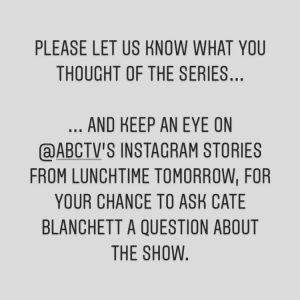
 Welcome to Cate Blanchett Fan, your prime resource for all things Cate Blanchett. Here you'll find all the latest news, pictures and information. You may know the Academy Award Winner from movies such as Elizabeth, Blue Jasmine, Carol, The Aviator, Lord of The Rings, Thor: Ragnarok, among many others. We hope you enjoy your stay and have fun!
Welcome to Cate Blanchett Fan, your prime resource for all things Cate Blanchett. Here you'll find all the latest news, pictures and information. You may know the Academy Award Winner from movies such as Elizabeth, Blue Jasmine, Carol, The Aviator, Lord of The Rings, Thor: Ragnarok, among many others. We hope you enjoy your stay and have fun! 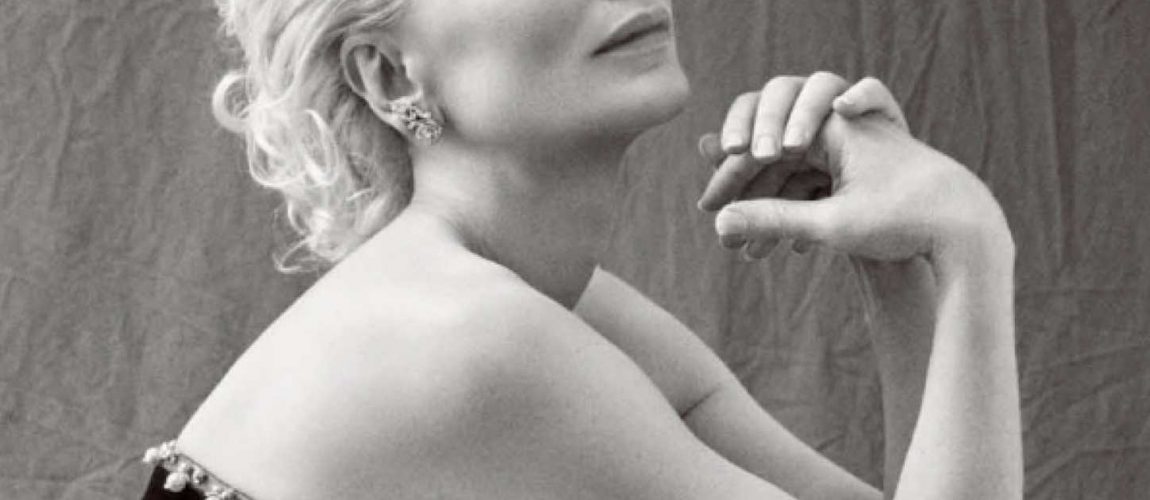
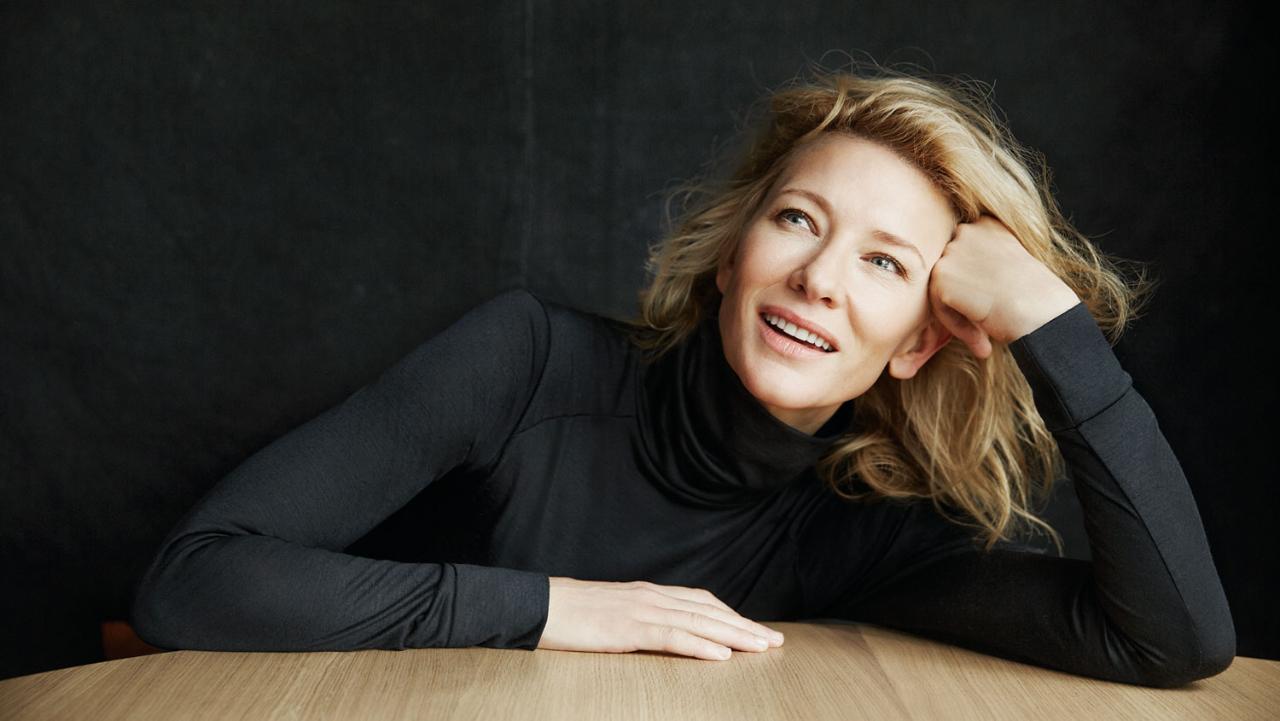

 Black Bag (202?)
Black Bag (202?) Father Mother Brother Sister (2024)
Father Mother Brother Sister (2024) Disclaimer (2024)
Disclaimer (2024) Rumours (2024)
Rumours (2024) Borderlands (2024)
Borderlands (2024) The New Boy (2023)
The New Boy (2023) TÁR (2022)
TÁR (2022) Guillermo Del Toro’s Pinocchio (2022)
Guillermo Del Toro’s Pinocchio (2022)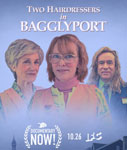 Documentary Now!: Two Hairdressers in Bagglyport (2022)
Documentary Now!: Two Hairdressers in Bagglyport (2022)













Hello, don’t know if you are aware but there’s an article (or review) about Mrs. America in the latest Vogue US, the April issue.